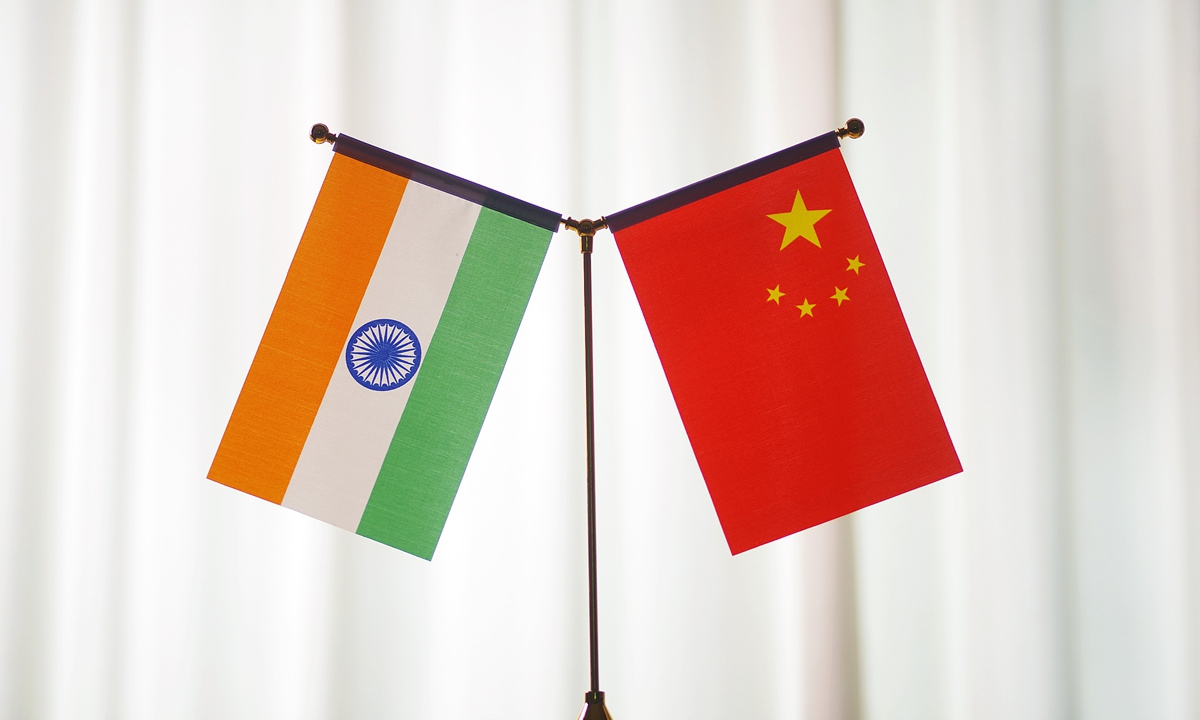
China India Photo:CFP
Chinese industry representatives and experts said their concerns about the deteriorating business climate in India remain strong, despite reported New Delhi moves to ease curbs on foreign direct investment (FDI).
The FDI rules, mainly targeted at Chinese companies, have created a bottleneck for FDI inflows to India.
While India's new move could be encouraging, especially for areas where Chinese companies have heavily invested, such as mobile phones, infrastructure and energy, constant probes and sanctions imposed on Chinese businesses have damaged India's image among Chinese investors, experts said.
The Modi administration has been monitoring all investment proposals from companies that are either based in countries that share a land border with India or have an investor from one of these countries, according to media reports.
The situation might change since the country is mulling exempting projects where the beneficial ownership is less than 10 percent, the report said, citing people familiar with the matter, indicating that the investor may be from a neighboring country but would only hold a small stake in the planned project.
India's new move reflects its worry about a dry-up in FDI inflows, and the Indian government is short of money, Liu Zongyi, secretary-general of the Research Center for China-South Asia Cooperation at the Shanghai Institutes for International Studies, told the Global Times on Wednesday.
The new policy, if it comes into force, would mainly aim at those businesses that have already established branches in the country which do not involve any "sensitive" areas, industry insiders said.
Chinese companies have made significant contributions to India's economic development in the past years.
A recent example is a 12.19-meter large-diameter mud and water balancing shield machine developed by China-based China Railway Construction Heavy Industry Co, helping build the tunnel link for the first section of the Mumbai Coastal Highway Tunnel, which was completed on January 10. It is the largest diameter shield machine in India.
However, India is losing large volumes of FDI from China, as Chinese companies, like Tencent and Alibaba, started to transfer their businesses to Southeast Asia or the Middle East, experts said.
Despite the reported easing, businesses and experts do not pin much hope on it, calling it an "insignificant" move that will not change the fundamental problems that Chinese investors are facing in India.
"At first glance, it seems to be a friendly move for Chinese enterprises, but actually, Chinese enterprises will not benefit much, because 10 percent is too little [for investors] to have a decisive influence on businesses," Liu noted.
Liu said that it's possible that some Chinese companies may invest in India anyway because of the policy, since the market is huge.
A senior business representative with years of working in India surnamed Huang told the Global Times on Wednesday that India's tougher scrutiny of Chinese investment was originally a political imperative to tame domestic opinion, while India's economy remains underdeveloped, forcing it to relax restrictions on Chinese investments.
But India's move will not change much in terms of the tense atmosphere for foreign investors, especially China, since 10 percent is "too small to be sincere" for investors, Huang said, saying more efforts are needed to draw FDI from China.
Other issues like rising visa and entry restrictions on Chinese businesspeople in India have created hurdles for projects to run smoothly, he noted.




